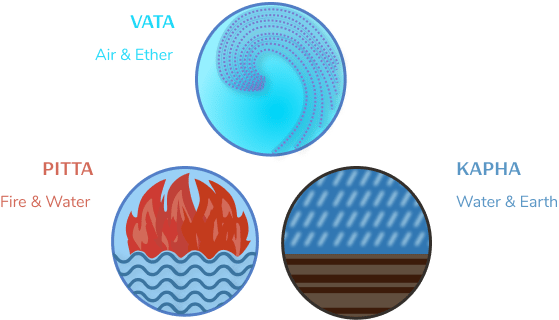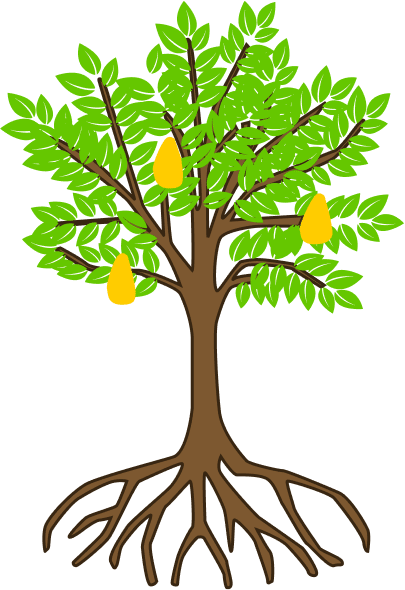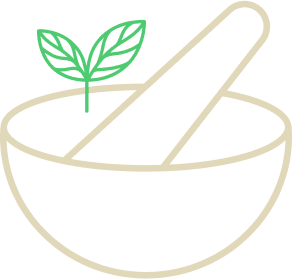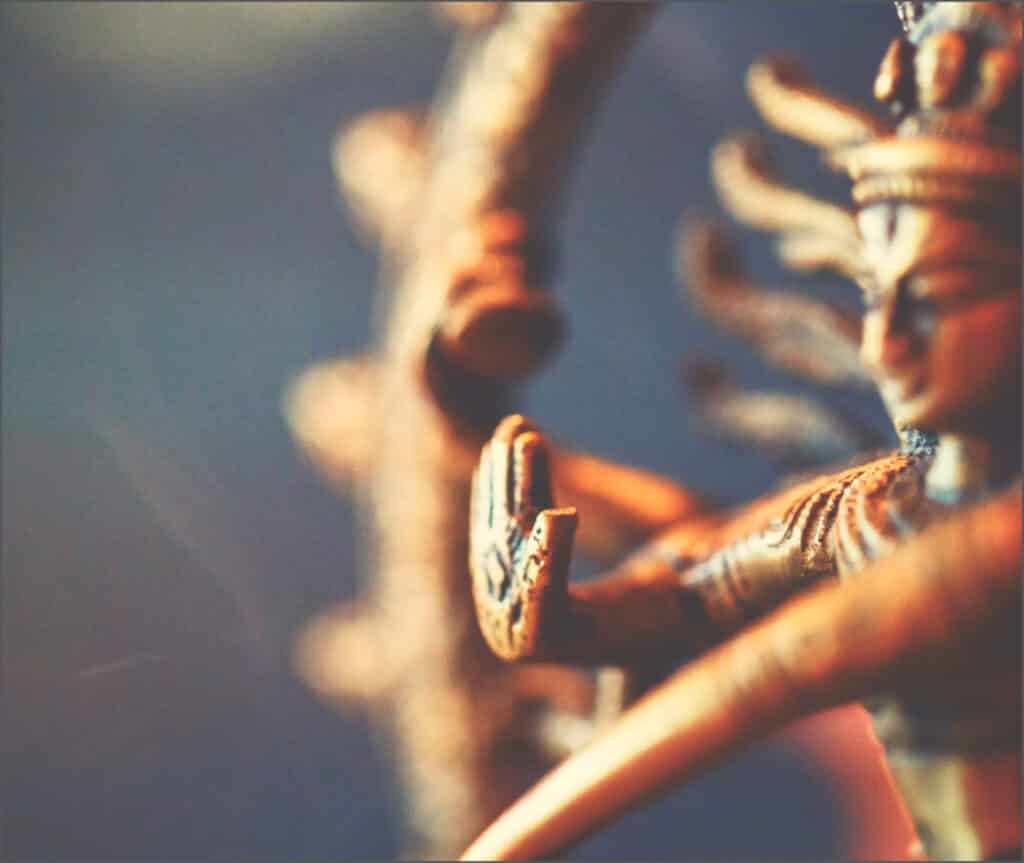My Personal Journey
My interest in Ayurveda began in 1998 at age 38. After struggling with an anxiety disorder since age sixteen, I began actively searching for a natural cure in 1990. My journey led me down many alternative paths, each offering some insight and partial solutions; but my real break came while glancing through an Ayurvedic book. There, I read about the physical characteristics of Vata individuals. The description so closely matched my own that it was as though they were describing me personally. Further reading confirmed my suspicion: the emotional imbalances of Vata individuals includes anxiety.
Introduction to Ayurveda
My interest in Ayurveda began in 1998 at age 38. After struggling with an anxiety disorder since age sixteen, I began actively searching for a natural cure in 1990. My journey led me down many alternative paths, each offering some insight and partial solutions; but my real break came while glancing through an Ayurvedic book. There, I read about the physical characteristics of Vata individuals. The description so closely matched my own that it was as though they were describing me personally. Further reading confirmed my suspicion: the emotional imbalances of Vata individuals includes anxiety.
The Elements
Vata is formed from the elements air and ether and is the principal of movement in both body and mind; Pitta comes from fire and water and governs all forms of physical and mental metabolism; and Kapha arises from water and earth which provides the materials for physical and mental structure. Ayurveda believes that the five elements are the building blocks of nature and exist in all matter. As man is a microcosm of nature, the five elements also exist within each individual, in every cell, tissue and organ. The unique combination of these elements determines our doshas; and our doshas determine our physical, behavioral and emotional make-up.


The Cause of Disease
Ayurveda believes all disease begins in either the digestion or the mind. Via the digestion we can view the process and progress of disease like the parts of a tree. The roots represent digestion, where disease begins; the trunk is the blood stream, the vehicle for transport; branches are the the first place disease manifests itself in the body, usually a place of weakness or previous injury; and the blossoms appear when the symptoms have worsened and become severe. Since symptoms are the body’s way of communicating that something is wrong, if a blossom is removed another will appear somewhere else until the root of the problem is addressed. If disease originates in the mind, then emotional examination is required. In Western society, symptoms of gas, heartburn, indigestion, and constipation, are considered normal aspects of the digestive and elimination process; in Ayurveda, these disturbances are considered the body’s voice indicating that the disease process has begun.
Characteristics
An easy way to see how the doshas distinguish themselves from each other is through their physical and emotional make-up.
When the doshas are balanced:
Physical
- Vata: Thin, active, cool, dry
- Pitta: Slender, warm, strong appetite
- Kapha: Husky, strong, slow & solid
Emotional
- Vata: Creative, energetic, enthusiastic, light-hearted
- Pitta: Courageous, brave, focused, ambitious
- Kapha: Calm, compassionate, nuturing, affectionate
When the doshas are imbalanced:
Physical
- Vata: Skinny, cold, over-active
- Pitta: Hot, perspiration, diarrhea
- Kapha: Overweight, lethargic, congested
Emotional
- Vata: Fear, worry, nervousness, anxiety
- Pitta: Anger, judgement, resentment, jealousy
- Kapha: Attachment, greed, control, depression

Approach to Well-being
Although Ayurveda believes the correct diet and lifestyle are the keys to good health, I believe that our soil, food and lifestyles cannot fully support our health today, in the way that they could 5000 years ago. Therefore, when working with a client, I not only select the traditional Ayurvedic approaches of a food plan, essential oils, herbs and lifestyle suggestions; but when appropriate I also include nutritional supplements, bodywork, marma point therapy, and emotional guidance, to balance today’s unhealthy influences.
Marma Points
Marma points, part of the Ayurvedic system of healing, are similar to acupuncture points and are connected via an invisible energy network known as Nadis. There are 107 Marma points all over the body and each point relates to a specific organ and function of the body. Under normal circumstances, energy flows uninterrupted through the Nadis while passing through the Marma points. Due to external influences like stress, tension, injury, lack of rest, etc., energy gets blocked at these points, which manifests itself on both physical and emotional levels. Frequently, even with issues as simple as muscle tension, if the energy is blocked, bodywork alone is unlikely to completely resolve the issue. An important part of Ayurvedic healing principles includes balancing the heating and cooling qualities within the body; when working with the Marma points I incorporate these principles of balance for both the mind and body through these energy channels.
Pain Consultation & Treatment
When a client is experiencing pain, the session focuses on immediate pain reduction. A dialogue with the body is initiated, incorporating Marma Point Therapy (MPT), to understand where and when the problem began and to immediately reduce the discomfort. MPT addresses the root cause of all types of pain that may have originated after surgery, from an accident or an unresolved emotional trauma. Clients often report feeling great relief after years of unexplained pain and discomfort that their doctors are unable to understand or alleviate. With subsequent appointments pain reduction continues until either completely eliminated or reduced to a manageable level. When results are reached a full Ayurvedic consultation is recommended.
What to expect during a Full Consultation
An Ayurvedic consultation is divided into two parts and usually takes three hours to complete. First, the paperwork, which is downloaded and filled out prior to the appointment, is discussed. Through dialogue, additional information is gathered relating to the internal and external body, the behavior of the mind and the issues the client wants to resolve. Next, the tongue and pulse are evaluated. Within a week, an ROF (report of findings) appointment takes place, at which time the information gathered is translated for the client and a direction for healing is established.
Areas of Focus
As Ayurveda deals with a wide variety of problems, listing all the conditions that it is able to alleviate would be difficult. Instead, I have listed those conditions I have worked with directly.
- Digestion & Elimination
- Joint pain
- Numbness & Tingling
- Structural Challenges
- Food Allergies
- Lethargy
- Weight & body image
- Emotional disorders
- Hepatitis C
- Insomnia
- Irritable Bowel Syndrome (IBS)
- Arthritis
- Skin Conditions/Rashes/Acne
- Nerve pain/injuries & Conditions
- Muscle pain & Injuries
- Headaches
Testimonials
I fell on my tailbone when I slipped down a flight of icy stairs, and it never really healed. After receiving Marma Point Therapy from Wendy for about 4 times, my tailbone doesn't hurt any more.
From Swedish massage to deep tissue massage to Marma point therapy, she listen to you and your body and adapt her treatment accordingly.
Fees and Appointments
Ayurveda consultation
Each initial Ayurvedic consultation is two hours (120 mins), $240.
Follow-up visits are usually less than an hour.
| 120 min | 30 min | 15 min | |
| Ayurveda consultation | $250 | $80 | $40 |
Bodywork and Marma Point Therapy
| 90 min | 60 min | 30 min | |
| Bodywork and Marma Point Therapy | $190 | $130 | $80 |
Ayurveda Massage
Abhyanga is a traditional Ayurvedic massage done by applying warm herb-infused oil to the body restoring the balance of doshas/bioenergy and vitality.
Vata imbalances require warming Sesame or Almond oil
Pitta imbalances require cooling Coconut or Sunflower oil
Kapha imbalances require light and warming Almond or Olive oil
Abhyanga benefits:
Eliminates body impurities.
Calms nerves and promotes deeper and better sleep.
Softens and smooths skin, reduces effects of ageing.
Improves blood circulation and stimulates internal organs.
Ayurveda Massage – Abhyanga
| 90 min | 75 min | 60 min | |
| Ayurvedic Massage – Abhyanga | $180 | $160 | $130 |
Gift Certificate
Ayurveda gift certificates are available.

